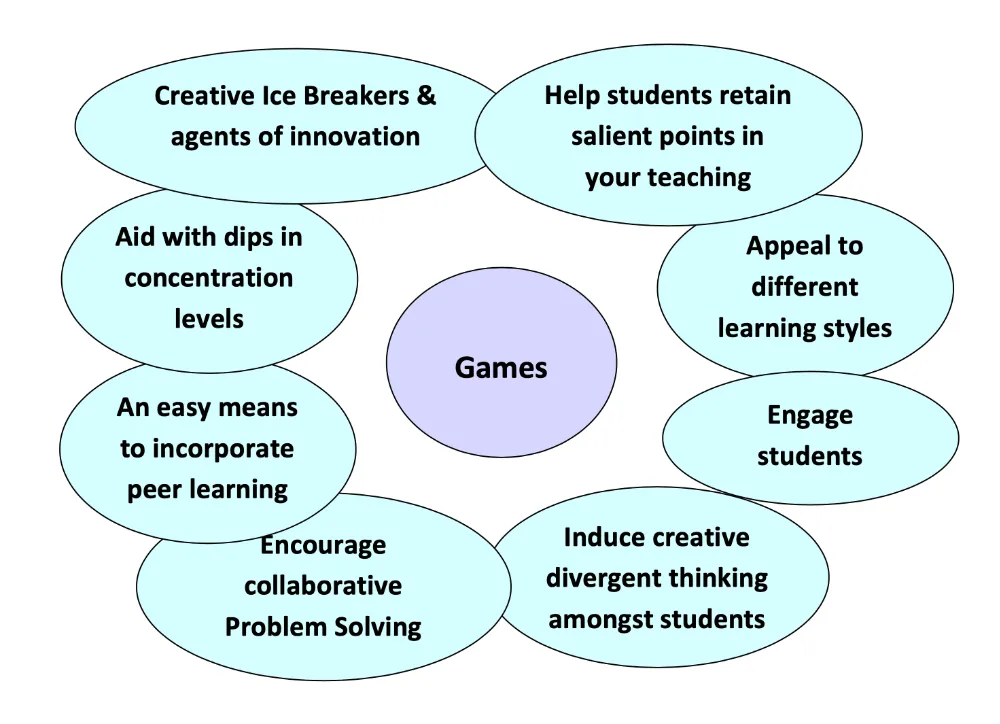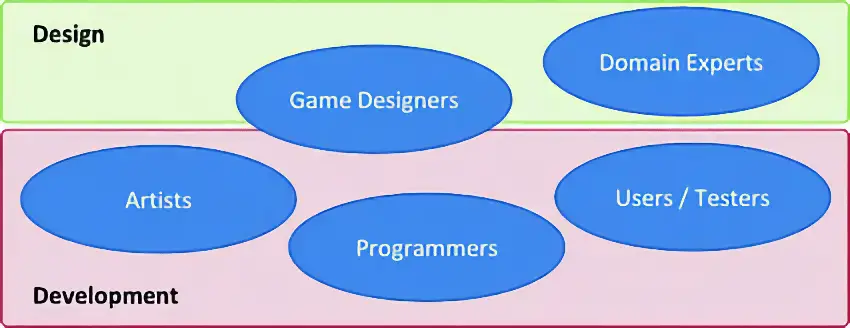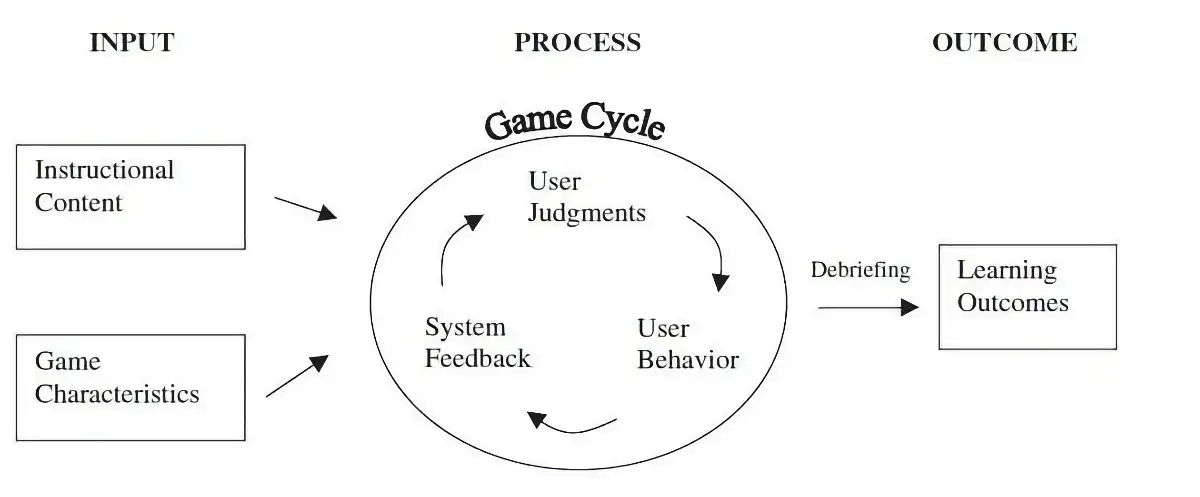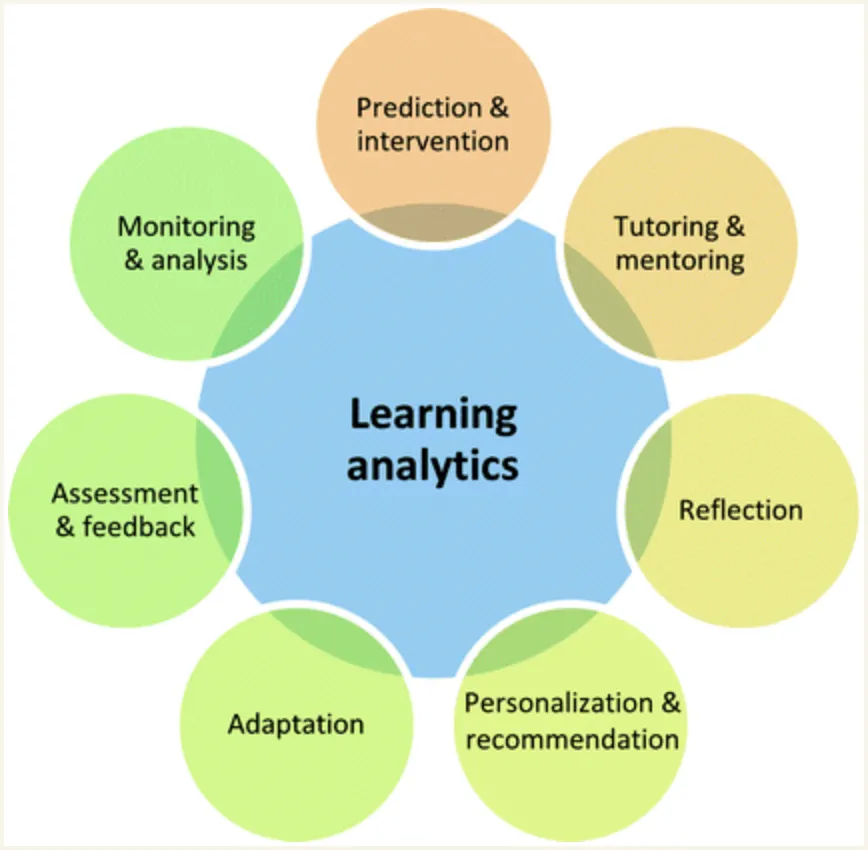Digital Game Based Learning¶
an introduction
by Video Games Without Borders
Game based learning (GBL) is a type of game play that has defined learning outcomes.
Digital game based learning (DGBL) refers to using actual digital video games as learning tools.
GBL is NOT gamification¶
Game-based learning should not be confused with gamification.
Gamification takes an element of education and replaces it with a game-based element. For instance, a teacher may replace grades with levels or experience points.
VideoGame types¶
several types of games may be used in digital game-based learning:
- Educational Games: use an engaging and immersive learning experience to deliver specified learning goals, outcomes and experiences.
- Online Games: range from simple text-based games to games that span complex, virtual worlds used by large numbers of players simultaneously.
- Serious Games: train or educate users; generally, serious games have a primary purpose other than entertainment.
- Simulations: model real-world situations.
DGBL Domains¶
- Language Learning
- Mathematics and Science (STEM)
- Social Studies and History
- Development of Cognitive Skills
Principles¶
- A safe environment to explore and in which to make mistakes
- Learning through enjoyment and "fun"
- Contextualised, goal oriented instead of abstract learning
- Experiential learning: learning by doing
- Intrinsic motivation: playing is voluntary and self-driven
- Seamless accountability and feedback
- Combine audio, graphics and movement into an interactive and immersive environment
- Age and culture appropriate
Mechanisms¶
- A fictional or real world setting
- Progressive difficulty levels and appropriate challenge
- Immediate and constructive feedback
- A social element that allows people to share experience and build bonds
- Clear, achievable goals, rules, measurable outcomes and rewards
Videogames¶
Games bring together combination of motivating elements not found together in any other medium.
Games:
- are a form of fun -> enjoyment and pleasure
- are a form of play -> intense and passionate involvement
- are rules -> structure
- are goals -> motivation
- are interactive -> doing
- are adaptive -> flow
- have outcomes and feedback -> learning
- have a win state -> ego gratification
- have conflict/competition/challenge/opposition -> adrenaline
- have problem solving -> sparks creativity
- have peer interaction -> social groups
- have characters and story -> emotions
36 Learning principles in VideoGames¶
| 1. Active, Critical Learning Principle | All aspects of the the learning environment are set up to encourage active and critical, not passive, learning |
| 2. Design Principle | Appreciating good design |
| 3. Semiotic Principle | Seeing interrelations within and across multiple sign systems (images, words, actions, symbols, artifacts, etc.) as a complex system is core to the learning experience |
| 4. Semiotic Domains Principle | Mastering game languages and participation in the affinity groups connected to them |
| 5. Metalevel Thinking About Semiotic Domains Principle | Relating the game world to other worlds |
| 6. "Psychosocial Moratorium" Principle | Taking risks with reduced consequences |
| 7. Committed Learning Principle | Putting out effort because they care |
| 8. Identity Principle | Combining multiple identities |
| 9. Self-Knowledge Principle | Watching their own behaviour and their current and potential capacities |
| 10. Amplification Of Input Principle | For a little input, learners get a lot of output |
| 11. Achievement Principle | intrinsic rewards from the beginning, customised to each learner's level, effort, and growing mastery and signaling the learner's ongoing achievements |
| 12. Practice Principle | Being encouraged to practice in a context where the practice is not boring |
| 13. Ongoing Learning Principle | Having to master new skills at each level, with cycles of new learning, automatization, undoing automatization, and new re-organized automatization |
| 14. "Regime Of Competence" Principle | Tasks being neither too easy nor too hard. |
| 15. Probing Principle | Learning is a cycle of probing the world (doing something); reflecting in and on this action and, on this basis, forming a hypothesis; reprobing the world to test this hypothesis; and then accepting or rethinking the hypothesis |
| 16. Multiple Routes Principle | There are multiple ways to make progress or move ahead. This allows learners to make choices, rely on their own strengths and styles of learning and problem-solving, while also exploring alternative styles |
| 17. Situated Meaning Principle | Discovering meaning of signs (words, actions, objects, artifacts, symbols, texts, etc.) situated in embodied experience |
| 18. Text Principle | Texts are not understood purely verbally but are understood in terms of embodied experience |
| 19. Intertextual Principle | Relating information |
| 20. Multimodal Principle | Meshing information from multiple media (images, texts, symbols, interactions, abstract design, sound, etc.), not just words |
| 21. "Material Intelligence" Principle | Understanding how knowledge is stored in material objects and the environment |
| 22. Intuitive Knowledge Principle | Intuitive or tacit knowledge built up in repeated practice and experience. Not just verbal and conscious knowledge is rewarded |
| 23. Subset Principle | Practicing in a simplified setting |
| 24. Incremental Principle | Being led from easy problems to harder ones |
| 25. Concentrated Sample Principle | Mastering upfront things needed later |
| 26. Bottom-Up Basic Skills Principle | Repeating basic skills in many games |
| 27. Explicit Information On-Demand Just-In-Time Principle | Receiving information just when it is needed |
| 28. Discovery Principle | Experiments and Trying rather than following instructions |
| 29. Transfer Principle | Applying learning from problems to later ones |
| 30. Cultural Models About The World Principle | Thinking about the game and the real world |
| 31. Cultural Models About Learning Principle | Thinking about the game and how they learn |
| 32. Cultural Models About Semiotic Domains | Thinking about the games and their culture |
| 33. Distributed Principle | Meaning/knowledge is distributed across the learner, objects, tools, symbols, technologies, and the environment |
| 34. Dispersed Principle | Sharing knowledge with others outside the domain/game |
| 35. Affinity Group Principle | Being part of the gaming world and affinity groups bonded by the game and not shared race, gender, nation, ethnicity, or culture |
| 36. Insider Principle | Helping others and modifying games, in addition to just playing |
Flow¶
Flow emotions¶
Learning¶
DGBL approach¶
- introduction to videogame (+coach: tech + expectations)
- gameplay / experience (autonomous)
- game results / scores (autonomous)
- reflection / analysis (+coach)
- forming abstract concepts + real world application
Coach Skills¶
- ICT / Basic Digital Skills
- Minimal game playing experience
- Deep understanding of how a game can help learning and its differences with a classic book/course
- Recognise different players skills and support their game play
- Engage students in playing and progression
Assessment¶
Using games for assessment is more than games scores.
Assessment happens around a game more often than it happens inside the game, and teachers/coaches must still design and provide authentic, useful assessment tasks for students.
Development options¶
- Use entertainment/commercial games (Assassin's Creed / Civilization)
- Modify entertainment games (Kerbal Space Academy)
- Use virtual worlds (Minecraft)
- Use educational games (MinecraftEdu)
- Create games (Antura)
- Students create games
Domain Expert¶
Game Model¶
Objectives of learning analytics¶
GBL challenges¶
Curriculum: identify how a certain game can connect to the curriculum.
Game related: identify the accuracy and appropriateness of the content of the game. Irrelevant or distracting content from the game that could not be removed.
Attitudes: persuading all stakeholders and non-players about the educational value of the game.
Educators and Teachers support: make them aware of how to use games more effectively in education.
Assessment: Traditional assessments do not often align with GBL, so new models and approaches must be considered.
Developers encourage and support game developers in the creation of better educational games




